How Learner-Centered Instruction Can Enhance a Student’s Critical Thinking Skills
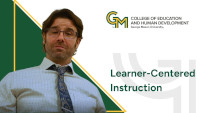 Attaining knowledge through a journey of discovery in which every step along the way is student-driven—this is one of the key principles upon which a learner-centered approach to instruction is based. A learner-centered teaching strategy puts the individual student at the center of their learning.
Attaining knowledge through a journey of discovery in which every step along the way is student-driven—this is one of the key principles upon which a learner-centered approach to instruction is based. A learner-centered teaching strategy puts the individual student at the center of their learning.

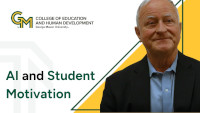 With AI finding its way into the classrooms of K-12 schools across the country, researchers in education are exploring how this technology can be harnessed in ways that will increase a student’s motivation to learn, even when the content or course assignment is difficult.
With AI finding its way into the classrooms of K-12 schools across the country, researchers in education are exploring how this technology can be harnessed in ways that will increase a student’s motivation to learn, even when the content or course assignment is difficult.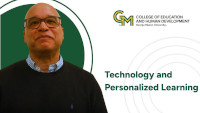 Meeting students where they are. This is a phrase familiar to educators that often guides them in teaching and presenting content in a way they hope will connect and resonate with their students. The objective is to ensure that their students experience that “Oh, I get it now!” moment because this is when true learning takes place. But this goal cannot be achieved using a “one-size-fits-all" approach to teaching in the classroom.
Meeting students where they are. This is a phrase familiar to educators that often guides them in teaching and presenting content in a way they hope will connect and resonate with their students. The objective is to ensure that their students experience that “Oh, I get it now!” moment because this is when true learning takes place. But this goal cannot be achieved using a “one-size-fits-all" approach to teaching in the classroom.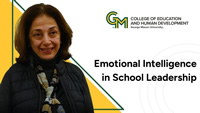 Look inside a well-run school and at the helm you will find school leaders who have the specialized managerial and organizational skills needed to operate an educational institution. These professionals handle a broad range of responsibilities that include hiring instructional staff, developing school budgets, overseeing student records, developing curriculum that meets state standards of learning, and other functions requiring extensive expertise in school administration.
Look inside a well-run school and at the helm you will find school leaders who have the specialized managerial and organizational skills needed to operate an educational institution. These professionals handle a broad range of responsibilities that include hiring instructional staff, developing school budgets, overseeing student records, developing curriculum that meets state standards of learning, and other functions requiring extensive expertise in school administration.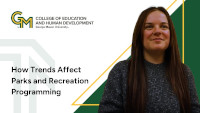 Getting back to nature, becoming physically fit, taking up a new hobby, or learning a new sport. These are some of the goals that people focus on as they search for ways to improve their overall well-being. And for many people, that search will lead them to their community parks which offer a wide variety of recreational programming options, some of which may reflect the latest national trends in leisure activities. But to determine what trends should be incorporated into their recreational programming, park agency professionals need to keep in mind what it is that draws people to their facilities in the first place.
Getting back to nature, becoming physically fit, taking up a new hobby, or learning a new sport. These are some of the goals that people focus on as they search for ways to improve their overall well-being. And for many people, that search will lead them to their community parks which offer a wide variety of recreational programming options, some of which may reflect the latest national trends in leisure activities. But to determine what trends should be incorporated into their recreational programming, park agency professionals need to keep in mind what it is that draws people to their facilities in the first place.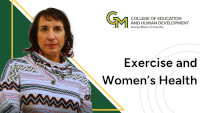 Women’s health is impacted by a complex system of hormones that control growth and development, beginning with childhood, continuing in adolescence, extending into young adulthood, and lasting into a person’s later years.
Women’s health is impacted by a complex system of hormones that control growth and development, beginning with childhood, continuing in adolescence, extending into young adulthood, and lasting into a person’s later years. When people think of recreation, what often comes to mind is the idea of playing games, participating in a sport, or indulging in a favorite hobby. A common theme connecting these activities is the idea of doing something that is fun, relaxing, and enjoyable. But there is another important aspect of recreation that people may not be aware of.
When people think of recreation, what often comes to mind is the idea of playing games, participating in a sport, or indulging in a favorite hobby. A common theme connecting these activities is the idea of doing something that is fun, relaxing, and enjoyable. But there is another important aspect of recreation that people may not be aware of.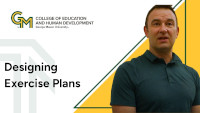 When someone lapses into a sedentary lifestyle, it can be difficult to break out of a rut and take that initial step toward becoming physically active. A person may realize they need to be proactive in regaining control of their health and well-being, but they may not know where to begin.
When someone lapses into a sedentary lifestyle, it can be difficult to break out of a rut and take that initial step toward becoming physically active. A person may realize they need to be proactive in regaining control of their health and well-being, but they may not know where to begin.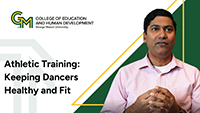 Anyone who has ever been to a ballet performance has seen how the dancers appear to glide effortlessly across the stage with acrobatic spins and jumps so difficult that they defy the imagination. Every move is executed with grace, discipline, and power. Years of dance lessons and practice made these performers the skilled dancers they are. What many people may not realize, however, is the critical role that athletic training can play in developing these talented dancers.
Anyone who has ever been to a ballet performance has seen how the dancers appear to glide effortlessly across the stage with acrobatic spins and jumps so difficult that they defy the imagination. Every move is executed with grace, discipline, and power. Years of dance lessons and practice made these performers the skilled dancers they are. What many people may not realize, however, is the critical role that athletic training can play in developing these talented dancers. Are you thinking about where to go for your next vacation, but nothing has inspired a sense of adventure or excitement? You may be searching for a way to shake off that feeling of ‘been there, done that’ when deciding on a place for your next get-away. You may be looking for ideas by reading online travel blogs, browsing through tourism magazines filled with pictures of far-away places, or participating in a Facebook group geared to those who love to travel.
Are you thinking about where to go for your next vacation, but nothing has inspired a sense of adventure or excitement? You may be searching for a way to shake off that feeling of ‘been there, done that’ when deciding on a place for your next get-away. You may be looking for ideas by reading online travel blogs, browsing through tourism magazines filled with pictures of far-away places, or participating in a Facebook group geared to those who love to travel.